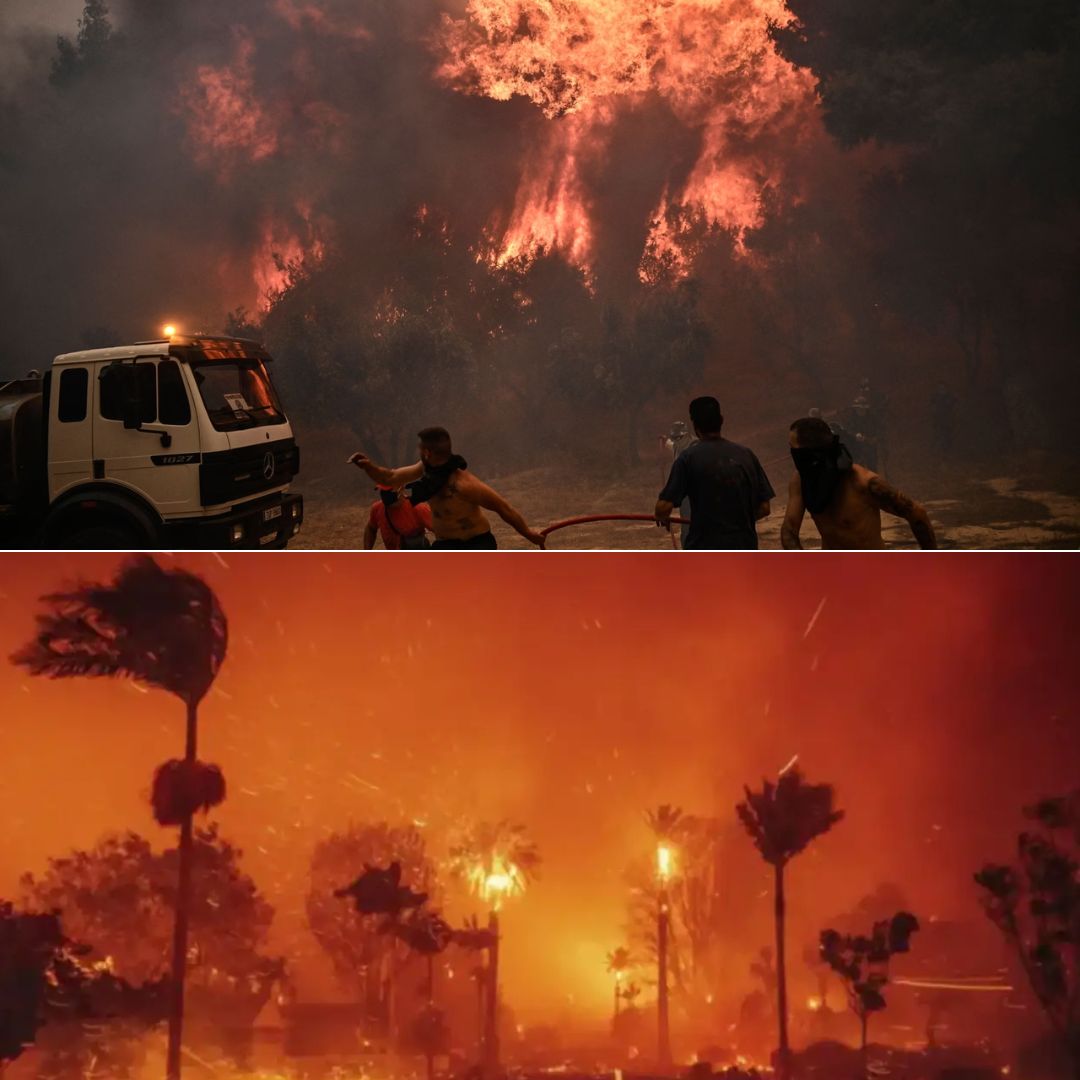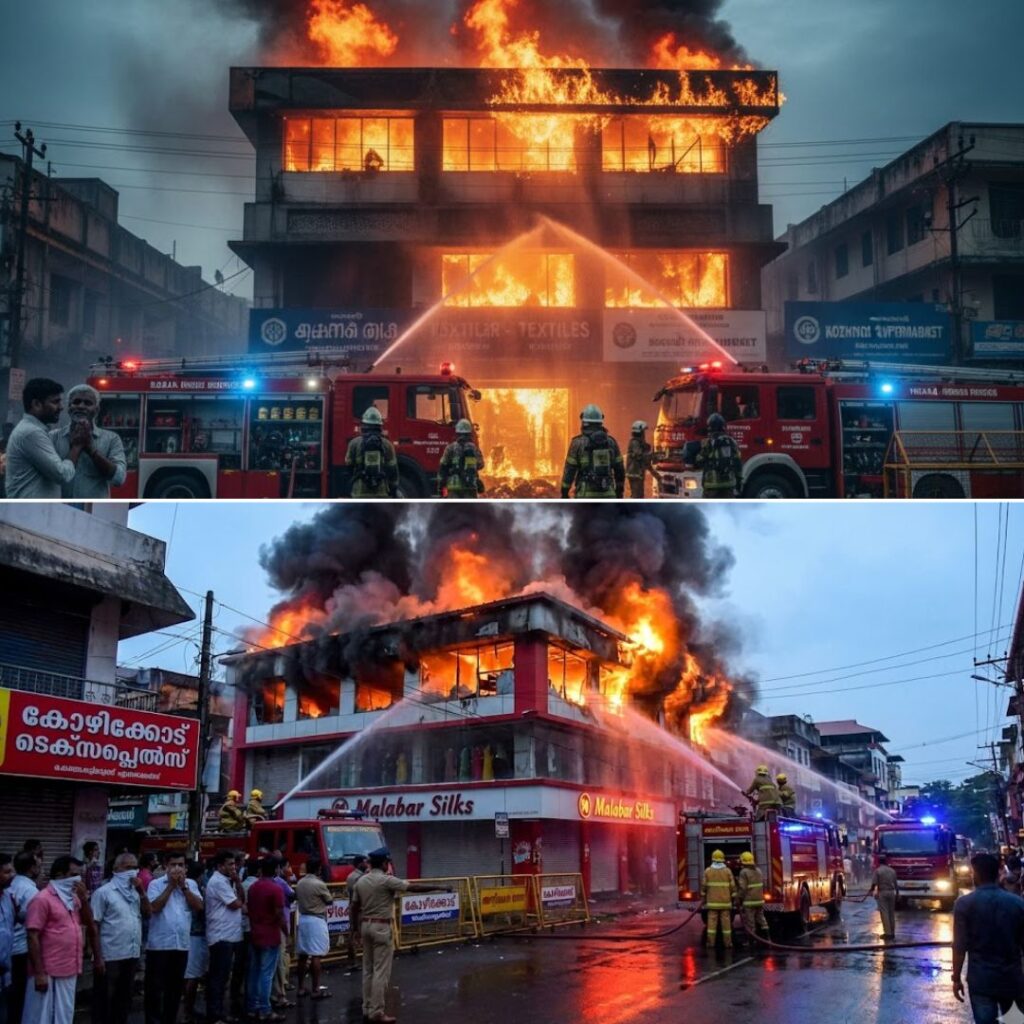Greece is enduring one of its most severe wildfire crises in recent years, with more than 100 active blazes scorching vast swathes of land as of August 13, 2025.
These fires – fuelled by searing heat, gale-force winds, and prolonged drought have forced mass evacuations across mainland regions and islands like Chios and Zakynthos, including entire towns, villages, hotels, and hospitals.
Nearly 5,000 firefighters, aided by 33 firefighting aircraft and thousands of volunteers, are battling flames under extremely dangerous conditions. At least 13 firefighters have been injured, with hundreds hospitalised due to smoke inhalation.
Flames have consumed homes, farmland, tourist resorts, and industrial facilities, while transport routes remain blocked and rescue efforts continue along coastal areas.

Fierce Flames, Human Toll and Relentless Rescue Efforts
In the Peloponnesian city of Patras, firefighters are facing towering flames near industrial plants, with one cement factory engulfed. Volunteer firefighter Giorgos Karavanis likened the scene to “doomsday,” describing exhausted crews working without sleep for days.
More than 7,700 residents from one town were ordered to leave within hours as smoke darkened the skies. Elsewhere, on the island of Chios, flames tore through pine forests and rural settlements, prompting urgent coastal evacuations by coastguard and private boats, including a rescue of dozens of people who had fled to the shoreline.
Zakynthos, a popular tourist destination, has seen entire hotel strips emptied as tourists were moved to emergency shelters in sports halls and schools.
Emergency services report that olive groves and farmlands livelihoods for thousands have been reduced to ash. Across Preveza and Achaia, medical centres have been cleared out, and road closures are hampering relief deliveries.
Environmental Crisis and Investigations into Causes
Experts warn that Greece’s wildfires are not isolated disasters but part of a deepening environmental emergency in southern Europe. The country is entering its third consecutive year of record-breaking summer temperatures, with recent highs above 40°C across the Mediterranean.
Winds reaching nine on the Beaufort scale are propelling embers over kilometres, igniting fresh fires in minutes. According to Greece’s Fire Department, 63 new fires ignited within just 24 hours, bringing the total number of active blazes to at least 106.
Many broke out simultaneously in regions like Kefalonia, Arta, and Achaia leading investigators from the Arson Crimes Division to suspect some may be deliberate acts.
This year’s crisis comes amid a continental heatwave stretching from Spain to Turkey, straining firefighting capacities across multiple nations. Environmental scientists caution that the combination of drought, high winds, and climate change is creating a “tinderbox” effect, where even small sparks can trigger uncontrollable infernos.
The Logical Indian’s Perspective
These wildfires are more than a Greek tragedy; they are a stark global warning. They show how climate change magnifies extreme weather events, destroys lives and livelihoods, and erodes community resilience. We cannot see such disasters as distant tragedies they are part of an interconnected ecological crisis that demands urgent, united action.
While we stand in solidarity with the families displaced, the brave responders in danger, and the communities grieving their losses, we must also hold ourselves accountable. Policies alone will not solve this awareness, personal responsibility, and mutual aid play vital roles too.
As part of a global community, we must ask not if but how fast we can transition to sustainable living, climate-smart infrastructure, and resilient ecosystems. How can we, together, turn our compassion into coordinated action that not only responds to disasters but prevents them in the first place?












